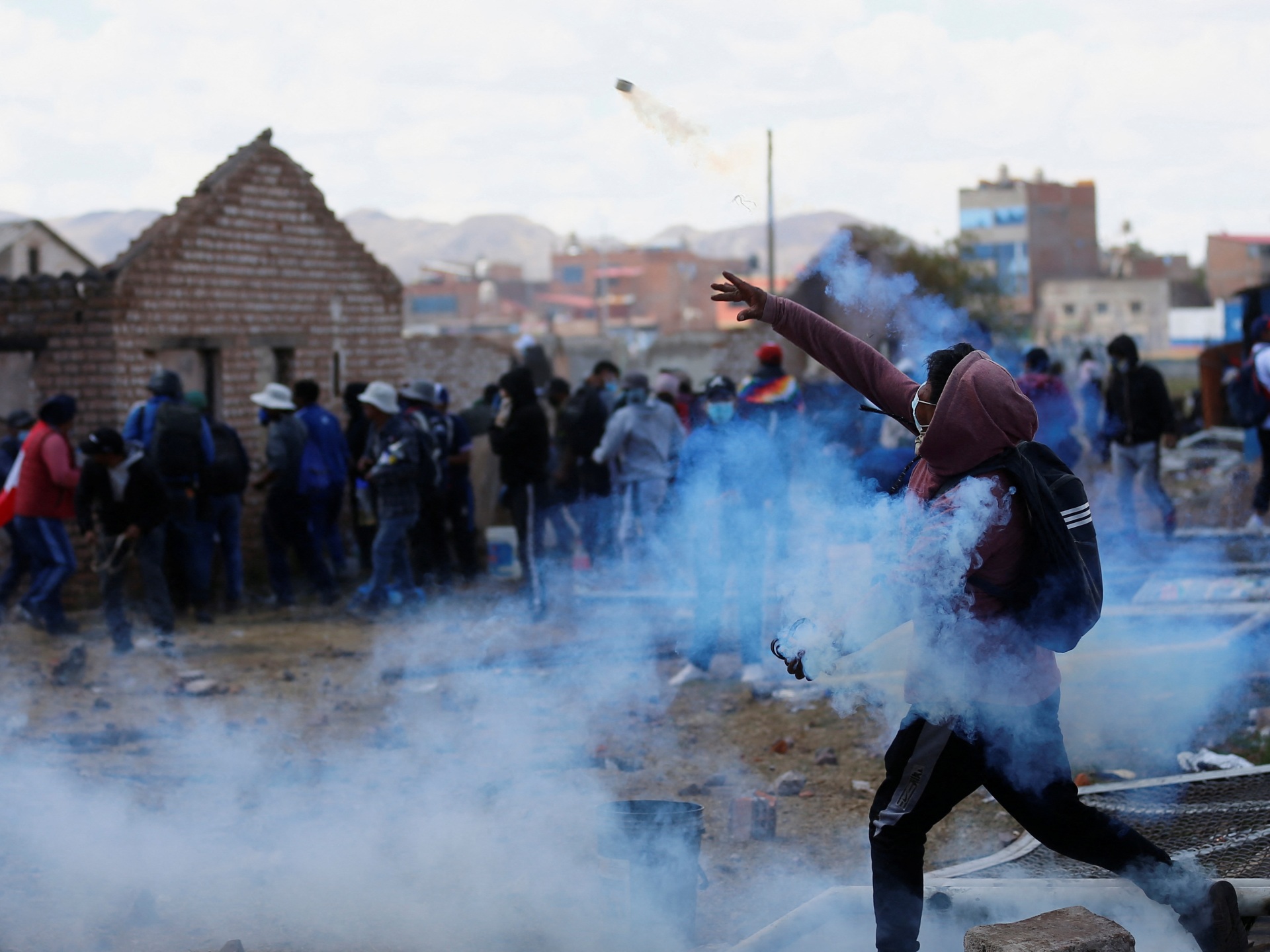Clashes in city of Juliaca most deadly since unrest began when Pedro Castillo was removed early last month.
Published On 10 Jan 2023
At least 17 people have been killed in clashes in southern Peru after protests demanding early elections and the release of jailed former President Pedro Castillo resumed.
The dead in the city of Juliaca, where protesters were attempting to take control of the airport, included two teenagers, the country’s human rights office said on Monday. Another person was also reported killed in the nearby city of Chucuito, where protesters blocked a highway, according to the Associated Press news agency.
It was the highest death toll since the unrest began in early December following Castillo’s removal and arrest in the wake of a widely condemned attempt to dissolve Congress and head off his own impeachment. Castillo is serving 18 months of pre-trial detention on charges of rebellion, which he denies.
Castillo’s successor, his former running mate Dina Boluarte, has supported a plan to push up to 2024 elections for president and Congress originally scheduled for 2026. She has also expressed support for judicial investigations into whether security forces have acted with excessive force.
But such moves have so far failed to end the unrest, which, after a short respite around the Christmas and New Year holidays, has resumed in some of Peru’s poorest areas, where support for Castillo’s rule had been strongest.
Nationwide, protests were reported in about 13 percent of Peru’s provinces on Monday, many of them consisting of roadblocks making it impossible for truckers to deliver produce to market.
In Juliaca, near the banks of Lake Titicaca in Peru’s southern Puno region, a Reuters news agency witness recorded footage of gunshots and smoke on the streets as protesters took cover behind large metal plates and road signs, and threw rocks at police using improvised slingshots.
Other footage showed people administering CPR to a man lying motionless on the ground in a blood-stained sweater, and people with severe injuries in a crowded hospital waiting room.
Some 68 people had been injured with some sent to hospital, Henry Rebaza, a Puno health ministry official, told the state-run television channel TV Peru. Some of the bodies had bullet wounds, Puno’s regional health director, Ismael Cornejo, told local radio station RPP.

Peru’s Ombudsman Office said in a statement the police and armed forces should not be trying to resolve the conflicts since doing so was the duty of Congress and the central government.
It called for police to comply with international standards in using force and for investigations into the deaths, while urging protesters to refrain from attacking property or impeding the movement of ambulances.
Speaking at a “national agreement” meeting earlier on Monday with representatives from the country’s regions and various political institutions, Boluarte said she could not grant some of the protesters’ key demands. She called for citizens to “reflect”.
“The only thing that was in my hands was moving forwards the elections, which we have already proposed,” she said. “What you are asking for is a pretext to continue generating chaos in the cities.”
The Inter-American Commission on Human Rights said it would conduct a visit to Peru from Wednesday to Friday, travelling to Lima and other cities to evaluate the situation.

